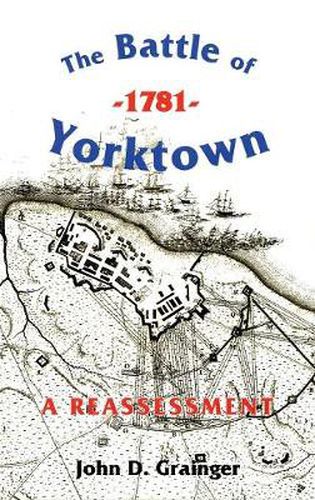Readings Newsletter
Become a Readings Member to make your shopping experience even easier.
Sign in or sign up for free!
You’re not far away from qualifying for FREE standard shipping within Australia
You’ve qualified for FREE standard shipping within Australia
The cart is loading…






Yorktown [1781], where a British Army, commanded by Lord Cornwallis, surrendered to the American forces under George Washington and their French allies, has generally been considered one of the decisive battles of the American Warof Independence. This accessible and authoritative account of the battle and the wider campaign goes back to original source material [diaries, letters, speeches, and newspapers], offering both a narrative of the events themselves, and an analysis of how the defeat came about and why it came to be seen as crucial. It shows that the battle was really a siege, that it involved relatively few numbers, and relatively little fighting, and was not immediately seen as decisive, with the war continuing for a further two years. It sets the battle and campaign in the wider context of a war which included action in the West Indies, Europe, Africa, Asia, and at sea; shows how movements of theFrench and British navies were a crucial factor; and, overall, reassesses the causes and significance of the battle.
JOHN D. GRAINGER, a former school-teacher, is the author of numerous books on military history, rangingfrom the Roman period to the twentieth century.
$9.00 standard shipping within Australia
FREE standard shipping within Australia for orders over $100.00
Express & International shipping calculated at checkout
Yorktown [1781], where a British Army, commanded by Lord Cornwallis, surrendered to the American forces under George Washington and their French allies, has generally been considered one of the decisive battles of the American Warof Independence. This accessible and authoritative account of the battle and the wider campaign goes back to original source material [diaries, letters, speeches, and newspapers], offering both a narrative of the events themselves, and an analysis of how the defeat came about and why it came to be seen as crucial. It shows that the battle was really a siege, that it involved relatively few numbers, and relatively little fighting, and was not immediately seen as decisive, with the war continuing for a further two years. It sets the battle and campaign in the wider context of a war which included action in the West Indies, Europe, Africa, Asia, and at sea; shows how movements of theFrench and British navies were a crucial factor; and, overall, reassesses the causes and significance of the battle.
JOHN D. GRAINGER, a former school-teacher, is the author of numerous books on military history, rangingfrom the Roman period to the twentieth century.